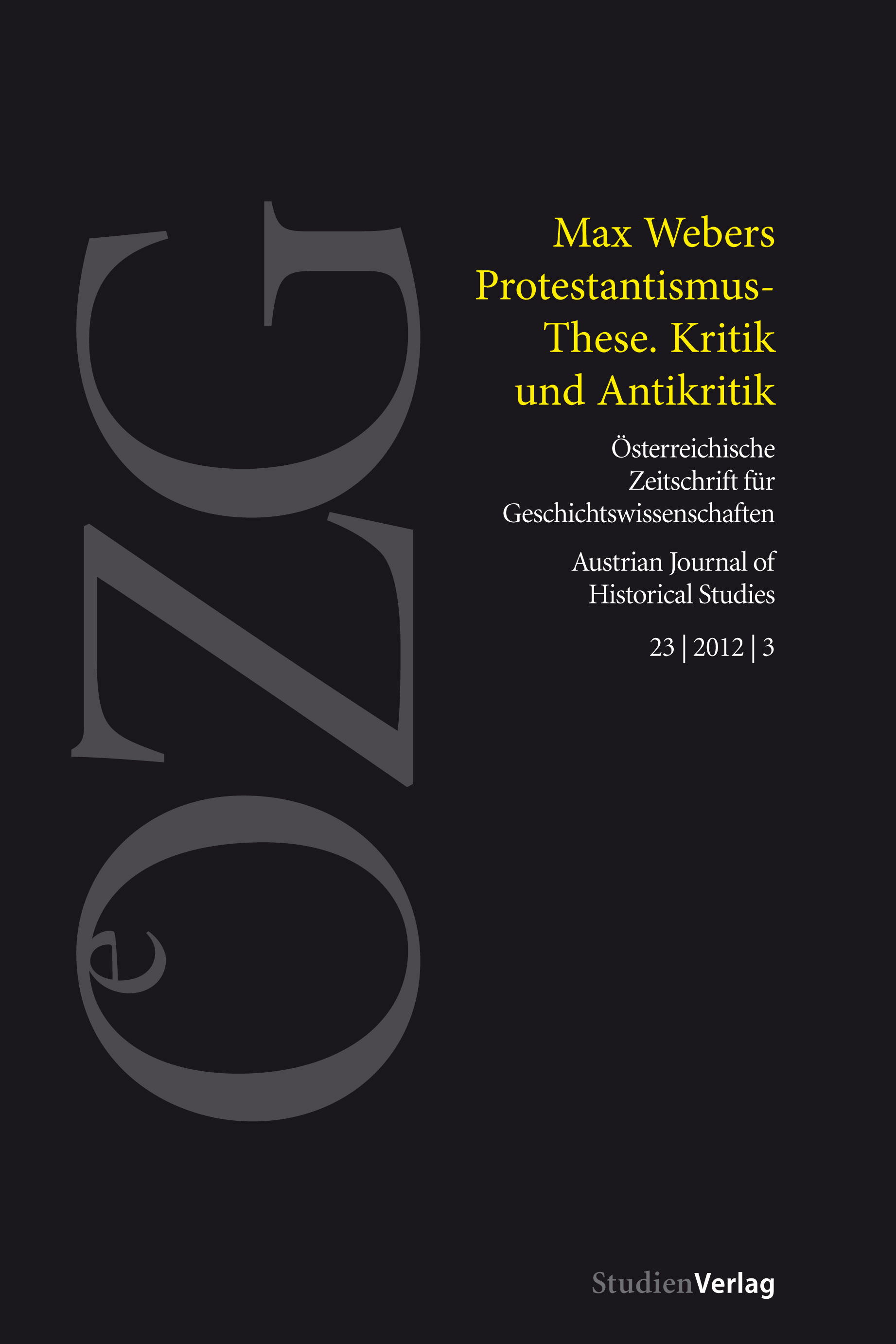Anmerkungen zum Entstehungskontext von Max Webers „Die protestantische Ethik und der ‚Geist‘ des Kapitalismus“
DOI:
https://doi.org/10.25365/oezg-2012-23-3-6Schlagworte:
Werner Sombart, Lujo Brentano, Georg Jellinek, Robert K. Merton, KapitalismusAbstract
When Max Weber assumed responsibility as editor of the Archiv für Sozialwissenschaft und Sozialpolitik in 1903, he faced an unexpected dilemma. On the one hand he was committed to discuss the historical role and the political implications of capitalism in this journal; on the other hand his co-editor Werner Sombart had just published a massive two-volume work on Modern Capitalism which Weber seriously disliked. As he did not want to annoy Sombart, Weber was not willing to review Sombart’s book. Weber’s solution: He asked the most renowned expert in the field of the history of economics of his time, Lujo Brentano, to write a review. At first, Brentano tentatively agreed to do so, and Weber promised to provide him with bibliographical information. As Weber had to find out over time, however, Brentano never submitted a review. While he corresponded with Brentano, Weber himself began to take an ever more intensive interest in the origins of capitalism and wrote the piece on The Protestant Ethic and the ‘Spirit of Capitalism’ which established his long-lasting, yet time and again challenged, fame as an expert in the area of religious sociology.


